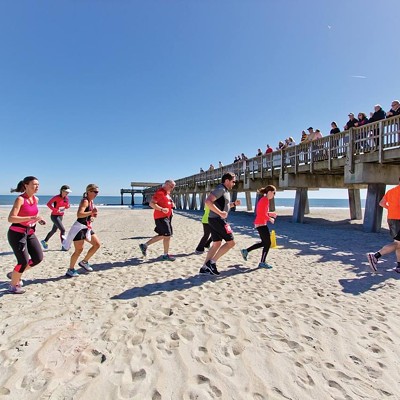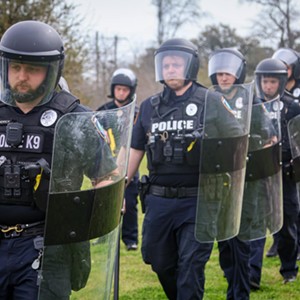College Student Guide
[
{
"name": "Air - MedRect Combo - Inline Content 1",
"component": "14680855",
"insertPoint": "7",
"requiredCountToDisplay": "5",
"parentWrapperClass": "fdn-ads-inline-content-block"
},{
"name": "Air - MedRect Combo - Inline Content 2",
"component": "14680856",
"insertPoint": "15",
"requiredCountToDisplay": "9",
"parentWrapperClass": "fdn-ads-inline-content-block"
},{
"name": "Air - SVP - Leaderboard - Inline Content - 2",
"component": "16852291",
"insertPoint": "10",
"requiredCountToDisplay": "10",
"parentWrapperClass": "fdn-ads-inline-content-block"
},{
"name": "Air - SVP - Leaderboard - Inline Content - 3",
"component": "16852292",
"insertPoint": "20",
"requiredCountToDisplay": "18",
"parentWrapperClass": "fdn-ads-inline-content-block"
},{
"name": "Air - SVP - Leaderboard - Inline Content - 1",
"component": "16852290",
"insertPoint": "25",
"requiredCountToDisplay": "22",
"parentWrapperClass": "fdn-ads-inline-content-block"
}
]
The Savannah College of Art & Design is known for its high-profile, hands-on projects, such as restoring downtown buildings, installing large-scale interactive art exhibits or painting murals.
But in a way, the most important new development for the college may be a step of a more virtual nature.
College officials hope that an ambitious new internet-based program, called e-Learning, will keep SCAD in the forefront of a growing -- and most analysts say, permanent -- trend in education.
Weve been supporting our on-campus courses with web enhancement materials for five years, so it's a very similar process and experience for students who go to class during the day but study materials on the web, says Darrell Naylor-Johnson, new Dean of e-Learning at SCAD.
But e-Learning goes well beyond the support mode into a whole new paradigm. Students can pursue a SCAD degree entirely online if they wish, or they can take some courses on campus and some in cyberspace.
Either way, campus students and online students learn together in a common environment that is light years beyond the stereotypical online degrees you see advertised in the back of Rolling Stone.
The thing about some of those so-called online degrees is that theyre not instructor-led, Naylor-Johnson says. That's now how we do things on campus and it's not how we do that online.
In contrast to some online degrees -- where the same coursework is offered at five or six institutions -- all SCAD e-Learning courses are designed specifically by SCAD faculty.
People come to SCAD to learn from our faculty, and thats what we do online as well. The best thing we can do is to have online students receive the same credit for the same course. Our programs are regionally accredited just like on campus -- they have to meet the same standards, Naylor-Johnson says. The online student is not a lesser student.
But e-Learnings true beauty, Naylor-Johnson says, is the way it works in concert with -- not in competition with -- the classroom environment.
Its definitely synergistic, he says. Students on campus can take courses along with distant students. It allows us to have a more dynamic classroom experience.
Naylor-Johnson cites the example of two students, one e-Learning in California and one on campus locally.
They ended up getting together while the student from California was in town, and developed a friendship, he says.
E-Learning also provides a way to expand access to a quality education for those who cant live on campus.
We have students who always wanted to come to SCAD and couldn't, Naylor-Johnson says. This way they can.
He cites the example of a man who recently got out of the military and immediately began a new job in the Washington, D.C., area.
When he saw we had a degree he was right there, Naylor-Johnson says. He was one of our first e-Learning students.
While learning art techniques via distance learning may seem counterintuitive, Naylor-Johnson says its a challenge that is surmountable.
Things like studio painting and sculpture -- obviously those things don't lend themselves as well, he says. But Im not saying they can't be done.
Naylor-Johnson uses SCADs tableaux vivant course as an example.
That course is all about painting large tableaux images, and we took it on as a challenge, he says. The course we've designed is primarily about documenting materials and safety issues. Its really not so much about the process as about how to make process happen.
In some specialized cases, Naylor-Johnson says, the virtual environment is actually preferable to the classroom.
Interactive design students, for example, mostly want to take courses online, he says.
While SCAD faculty members are responsible for all online coursework, they have a lot of help in the technical department.
One of the things we have that's important is a staff of instructional designers who actually work with faculty to help them transpose the classroom experience to an online environment, Naylor-Johnson says. Ordinarily, when an instructor goes into the classroom theyre relying on their sole expertise. But in this online environment they have this network of support.
Naylor-Johnson says that much like the web itself, SCADs e-Learning program is a work in progress.
Its hard to say until after the first year what the projections will be (for online enrollment), he says. But we are now able to develop the academically best areas to deliver course work.
To learn more about SCAD e-Learning or to register for online classes, go to www.scad.edu/scadelearning/
But in a way, the most important new development for the college may be a step of a more virtual nature.
College officials hope that an ambitious new internet-based program, called e-Learning, will keep SCAD in the forefront of a growing -- and most analysts say, permanent -- trend in education.
Weve been supporting our on-campus courses with web enhancement materials for five years, so it's a very similar process and experience for students who go to class during the day but study materials on the web, says Darrell Naylor-Johnson, new Dean of e-Learning at SCAD.
But e-Learning goes well beyond the support mode into a whole new paradigm. Students can pursue a SCAD degree entirely online if they wish, or they can take some courses on campus and some in cyberspace.
Either way, campus students and online students learn together in a common environment that is light years beyond the stereotypical online degrees you see advertised in the back of Rolling Stone.
The thing about some of those so-called online degrees is that theyre not instructor-led, Naylor-Johnson says. That's now how we do things on campus and it's not how we do that online.
In contrast to some online degrees -- where the same coursework is offered at five or six institutions -- all SCAD e-Learning courses are designed specifically by SCAD faculty.
People come to SCAD to learn from our faculty, and thats what we do online as well. The best thing we can do is to have online students receive the same credit for the same course. Our programs are regionally accredited just like on campus -- they have to meet the same standards, Naylor-Johnson says. The online student is not a lesser student.
But e-Learnings true beauty, Naylor-Johnson says, is the way it works in concert with -- not in competition with -- the classroom environment.
Its definitely synergistic, he says. Students on campus can take courses along with distant students. It allows us to have a more dynamic classroom experience.
Naylor-Johnson cites the example of two students, one e-Learning in California and one on campus locally.
They ended up getting together while the student from California was in town, and developed a friendship, he says.
E-Learning also provides a way to expand access to a quality education for those who cant live on campus.
We have students who always wanted to come to SCAD and couldn't, Naylor-Johnson says. This way they can.
He cites the example of a man who recently got out of the military and immediately began a new job in the Washington, D.C., area.
When he saw we had a degree he was right there, Naylor-Johnson says. He was one of our first e-Learning students.
While learning art techniques via distance learning may seem counterintuitive, Naylor-Johnson says its a challenge that is surmountable.
Things like studio painting and sculpture -- obviously those things don't lend themselves as well, he says. But Im not saying they can't be done.
Naylor-Johnson uses SCADs tableaux vivant course as an example.
That course is all about painting large tableaux images, and we took it on as a challenge, he says. The course we've designed is primarily about documenting materials and safety issues. Its really not so much about the process as about how to make process happen.
In some specialized cases, Naylor-Johnson says, the virtual environment is actually preferable to the classroom.
Interactive design students, for example, mostly want to take courses online, he says.
While SCAD faculty members are responsible for all online coursework, they have a lot of help in the technical department.
One of the things we have that's important is a staff of instructional designers who actually work with faculty to help them transpose the classroom experience to an online environment, Naylor-Johnson says. Ordinarily, when an instructor goes into the classroom theyre relying on their sole expertise. But in this online environment they have this network of support.
Naylor-Johnson says that much like the web itself, SCADs e-Learning program is a work in progress.
Its hard to say until after the first year what the projections will be (for online enrollment), he says. But we are now able to develop the academically best areas to deliver course work.
To learn more about SCAD e-Learning or to register for online classes, go to www.scad.edu/scadelearning/
































